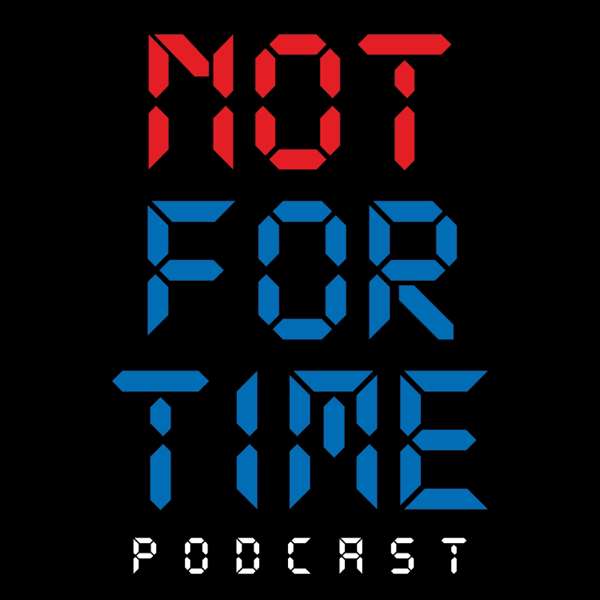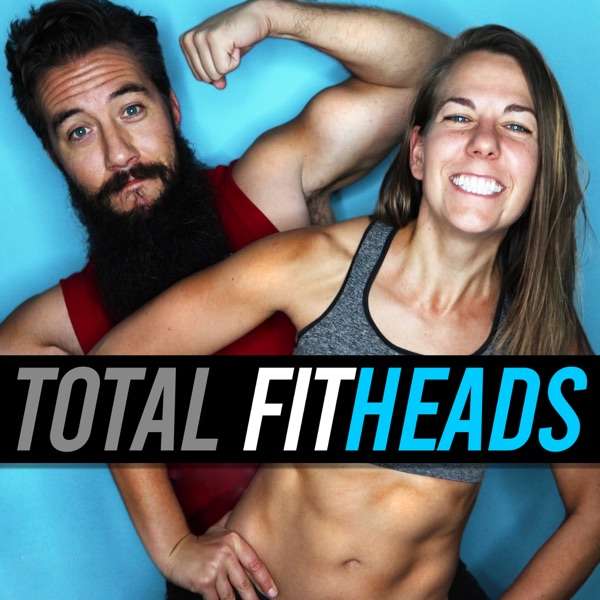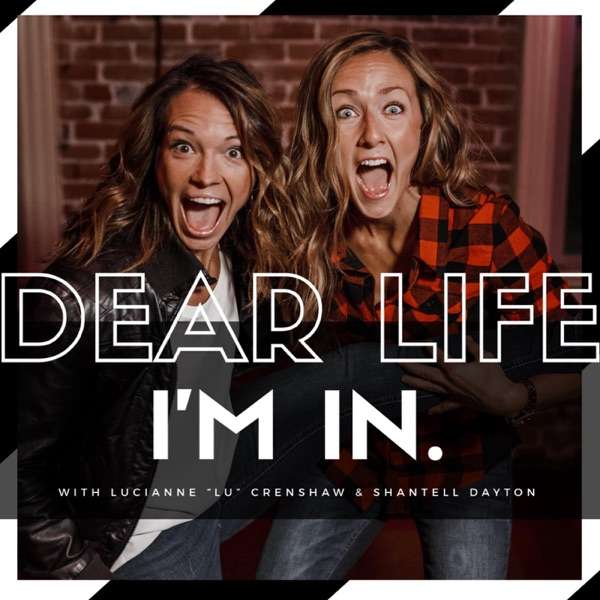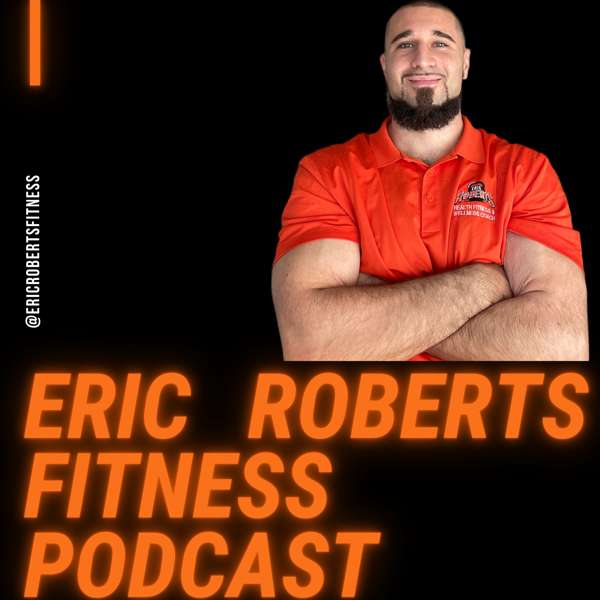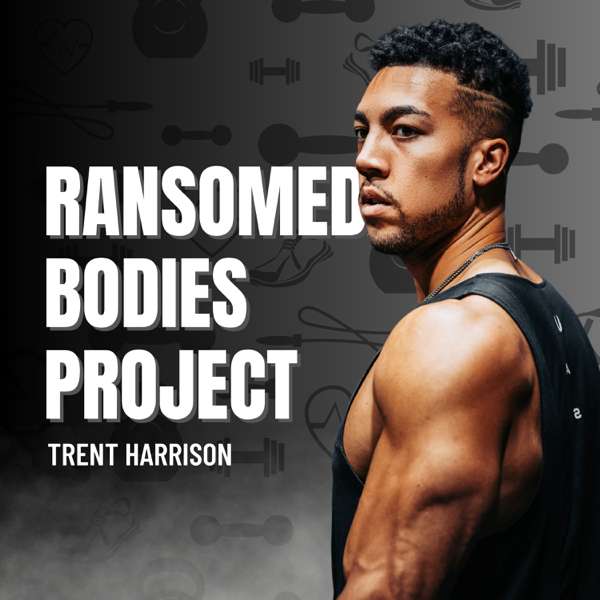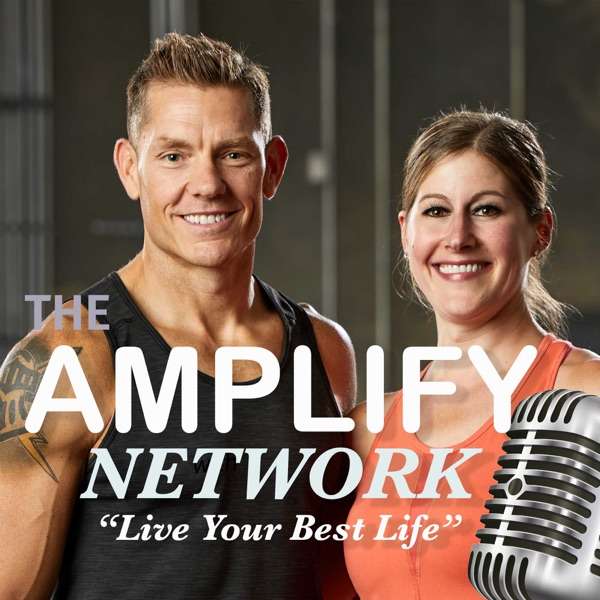Routine is an important component of creating healthy habits, but around the holidays, it can be tempting to throw your routines out the window. Having strong sleep hygiene year-round can help lower inflammation, fight off diseases, and help you enjoy your holiday celebrations with your loved ones.
On this episode of The Model Health Show, you’re going to hear five science-backed strategies to improve your sleep quality and have a silent night this holiday season. We’re going to discuss the statistics around sleep deprivation and a multitude of health conditions. You’ll also learn about how things like sugar, light exposure, and nutrient intake can impact your sleep quality.
A good night’s sleep is one of the best gifts you can give yourself. I hope this episode encourages you to have a happy, healthy, and well-rested holiday season. So click play, listen in, and enjoy these tips on how to have a silent night!
In this episode you’ll discover:
- How many Americans are sleep deprived.
- The connection between sleep deprivation and insulin resistance.
- How insulin resistance contributes to the leading causes of death.
- Why added sugar consumption in the evening can disturb your sleep.
- How blood sugar spikes can impact REM sleep.
- The best way to enjoy Christmas sweets.
- How fruit differs from processed sugar.
- The link between laughter and melatonin production.
- How laughing can reduce stress hormones.
- Which medicinal mushroom can improve sleep quality.
- How reishi affects your immune system.
- The way light exposure can disturb your sleep cycles.
- How circadian clocks in your body work.
- The importance of creating a screen curfew.
- What roles melatonin plays in the body.
- How tryptophan impacts sleep.
- Real food sources of tryptophan.
- The best foods ways to get more magnesium in your diet.
Items mentioned in this episode include:
Join TMHS Facebook community - Model Nation
Be sure you are subscribed to this podcast to automatically receive your episodes:
Thanks to our sponsors!
This episode is brought to you by Levels. When we're consuming something that is higher in sugar closer to bedtime, we can of course get a sugar spike and we might even be so tired, we end up going to sleep a little bit later, maybe even an hour or two later, but we can drop into hypoglycemia during our sleep, so we get this sugar spike and then our blood sugar can go way too low while we're sleeping, we might not consciously wake up, but it can be enough to wake us about a sleep, but we might not consciously wake up, but it might pull us out of our specific sleep cycles that we need to rejuvenate our bodies and our brains. In particular, we can damage our REM sleep, our rapid eye movement sleep. This is where a lot of memory processing and cognitive healing and function take place, so memory processing is converting our memories like what you're learning right now into your short-term memory and helping to facilitate the activity of our glymphatic system, the glial cells in our brain, to clean out metabolic waste from our brain while we're sleeping. So there's a lot of cool stuff taking place that's going to get disrupted if we are having a blood sugar spike and then crash because we're going a little bit too hard with the Christmas goodies, the holiday goodies before bed.Alright, so now again, keep in mind, this does not at all mean that we can't have some holiday treats. And especially, again, and this is a random occasional thing, but when we're consistently doing this, this can definitely be disrupting our sleep quality. We wanna be up and enjoying the holidays to have good energy and to enjoy our friends and family, enjoy our time to recover and to recalibrate, and a big part of that is improving our sleep quality, and so whether we are having some Christmas cookies, for example, my wife just made some Christmas cookies. We had a meal, our dinner meal was whole real foods and recipes like what are in the Eat Smarter Family Cookbook by the way and had a great dinner. Then we had some Christmas cookies. Alright. And having that along with... We just had some high quality protein and non starchy vegetables and things like that with the dinner, is going to reduce the glycemic load or the glycemic impact of those cookies, for example, but also the quality of things really helps as well. The more ultra processed and refined the ingredients, which is what we tend to do obviously when we're making treats and things like that is going to show up more so with dysregulated blood sugar. And so just being mindful of certain things like this, and the real issue by the way, is excessive sugar from added sugar, alright, from highly refined sugars, that is really the culprit. It's not all sugars creating sleep disruption. In particular, not the sugar found in nutrient-rich fruits, because people might be like, "Well, I can't have fruits in the evening then?" That's not the case at all. In fact, a four-week study cited in the Asia-Pacific Journal of Clinical Nutrition revealed that consuming two kiwi fruits in the evening led to improved sleep onset, meaning people fell asleep faster, improved sleep duration and improved sleep efficiency in adults with self-reported sleep disturbances. Alright, the key here is there's a plethora of sleep supportive nutrients in foods like kiwis, which we're gonna talk more about that shortly. But overall, for each of us, we just wanna be more mindful of not eating too many sweet treats close to bedtime. This does not mean that we can't dabble, alright, but also keep it in mind if it's around dinner and getting a real food nutrient-dense meal in and having a treat here or there, not an issue at all, alright, but we're talking specifically looking through the lens of improving and supporting our sleep quality, and that's the key, so number one is to lay off the candy canes late in the evening, but keep in mind whether it's a candy cane or even what we deem to be a healthy real food item. Maybe it's a sweet potato, for example, maybe it's the kiwi fruits that we talked about, maybe it's some apples, whatever the case might be, our bodies are going to respond differently versus someone else. We all have a unique metabolic fingerprint, a very unique microbial fingerprint as well. We got trillions of bacteria that are interacting with these foods and determining how our body, how our blood sugar is responding. And so we cannot have a cookie-cutter method of knowing which foods are ideal for helping us to maintain a healthy blood sugar, and blood sugar variability is one of the key biomarkers for determining our health preventing disease and determining also how long we're going to live is deeply correlated with having good blood sugar management. So this year is the year to stop guessing how foods are impacting us. We can actually track this. Our blood sugar is something that we can track in realtime and provide personalized data on how various foods influence us, and also how things like sleep and sleep deprivation influence how our bodies are responding to certain foods as well. For this valuable information and what's helping hundreds of thousands of people right now, I personally use the CGMs provided by Levels. So these continuous glucose monitors from Levels shows us in real time how food affects us, as compared to someone else, through these continuous glucose monitors, also Levels provide their incredible app that pairs with CGMs, these continuous glucose monitors, to give us personalized data in realtime, we could see how different things are impacting our blood sugar, and right now, Levels is providing listeners of The Model Health Show incredible access to their CGMs and their amazing Levels app. Go to levels.link/model. Go there right now, and when you get their annual membership, they're going to give you two months for free. So again, that's levels.link/model. That's LEVELS.link/model. Go there right now and take advantage of this. Stop the guesswork. We can actually find out how various foods, how sleep, how stress impacts our blood sugar. Alright, get this data. Use this as empowerment as we head into the new year. These CGMs and the Levels app and the Levels team is phenomenal. There is nobody better in the world at giving us this data, this personalized data, so again, levels.link/model.
This episode is brought to you by Four Sigmatic. giving Santa instead of the conventional, some people leaving Santa some whiskey, some people leaving Santa some eggnog, instead of the conventional, if we're looking to have a silent night to improve our sleep quality. There is something so remarkable about sipping on some Reishi in the evening. A study that was published in the Journal of Pharmacology Biochemistry and Behavior, found that this renowned medicinal mushroom Reishi was able to significantly decrease sleep latency, meaning that it helped test subjects to fall asleep faster. It was found to improve overall sleep time and also found to improve non-REM deep sleep time and REM sleep time as well. Another recent study published in the Journal, BMC Microbiology sought out to uncover why Reishi medicinal mushroom appears to improve sleep quality even for individuals with diagnosed insomnia, but here was the key, why is it able to do this without all the well-documented side effects seen with other conventional sleep aids, namely sleep medications. Reishi is able to improve sleep quality without negative side effects. The study titled exploration of the anti-insomnia mechanisms of Reishi looked at how reach impacts changes at the genetic level to bring about improved sleep quality. After their analysis, the researcher stated "Reishi mainly affects target genes and the pineal body amygdala nucleus, prefrontal cortex, cerebellum and other regions which regulate rhythm-related physiological processes." Sleep is all about the rhythms. So all about the rhythms, the circadian rhythms, and being able to efficiently go through our sleep cycles. Sleep is just something we do. We don't have to try to do it, most often, we have to get out of the way of what's disrupting the sleep quality, pulling those things out of the way. Our bodies know what to do if our bodies are presented and supported and put in the right conditions. And what Reishi appears to do is to actually target genes that influence how we're going through our sleep cycles, but not coming in as like a blunt instrument and knocking us over the head to knock us out. This is actually changing the conditions in the body, this is affecting our genes, it's affecting our microbiome, and this is thousands of years, thousands of years of data affirming this. This is very unique, and I'm not exaggerating this. We've got documentation, we're talking about ancient Chinese medicine, this has been utilized for a very, very long time, and our modern science is affirming what's been known for centuries. And so in addition to that, just to talk about how not only does this not have negative side effects and it's beneficial side effects, because we also wanna keep Santa healthy. Research published in the Journal of Pharmacological Sciences has found that the polysaccharides found in Reishi have extensive immuno-modulating effects, including promoting the function of antigen-presenting cells, humoral immunity and cellular immunity. Another study citing the Journal Mediators of Inflammation, showed that Reishi was able to enhance the proliferation of T-cells and B-cells as well, so again, leaning into cellular immunity and also humoral immunity. Many of these aspects are our immune system, yes, being able to target and take out pathogens, but also learning, being able to improve literally the memory of our immune cells so that they're more efficient at taking out foreign pathogens. Alright it develops an intelligence and humoral immunity so that we don't get sick from the same things again. It's such an important aspect of our health, and Reishi is able to do this. So really, really amazing. Obviously, Reishi is just in a different stratosphere, and again, I'm a big fan of not coming in with a blunt instrument and forcing ourselves to go into sleep, because we don't wanna get like a pseudo sleep, we wanna go through our sleep cycles efficiently and effectively, and this is why I'm a big fan of Reishi. And so, but the key is, where do you get it and get it with real efficacy, because a recent study was done finding that 80% to upwards of 90% of the medicinal mushroom products out there don't actually have the part of the mushroom or any mushroom at all, some of them didn't even have any, but the parts of the mushroom that create these therapeutic effects. Alright. The company that goes above and beyond, does a dual extraction of these medicinal mushrooms with Reishi, a hot water extract and an alcohol extract to get the beta-glucans, to get to triterpenes, to get all these different compounds that actually help to improve our health. And I'm talking about the folks at Four Sigmatic. Go to foursigmatic.com/model. That's FOURSIGMATIC.com/model. You're gonna get 10% off store-wide including their Reishi elixir. They also have a great Reishi hot cocoa that so many people are a huge fan of sipping on that in the evening, so when there's benefits there with that cacao as well, with the magnesium and tryptophan and other things that we're gonna talk a little bit more about soon, but all combined into one incredible beverage. Now, keep in mind, if we're doing the Reishi elixir straight on its own, this is earthy. It's an earthy tea, alright. Nobody said it's delicious. Alright, but you could jazz it up a little bit, maybe adding some high quality fats of your choice, some Stevia, whatever the case might be, you could find a way or if you're just into, oh, this is a earthy kind of herbal tea that deeply improves my sleep quality and also my health overall, that's what you're gonna find by sipping on Reishi, and you will always find the Reishi elixir in my cabinet. So go to foursigmatic.com/model for 10% off store-wide, and now it's let's move on to number four on our list of five ways to have a silent night and improve our sleep quality.
This episode is brought to you by PaleoValley. Another one of these important good sleep nutrients is featured in the journal appetite and also the journal PLoS One, Public Library of Science One, demonstrating that insufficient intake of vitamin C increases the likelihood of sleep disturbances and shortens the duration of overall sleep time. There are other studies affirming that vitamin C could actually help to support and reduce the frequency of sleep apnea as well, and several other aspects of improving our sleep quality and helping the body to modulate and reduce stress. That's really the key. And so I'm a huge advocate of making sure that we're getting plenty of food-based vitamin C, especially during this time of year, but it's important for people to realize that all vitamin C is not the same, synthetic vitamin C simply does not function in the same way, that food-based vitamin C does. A study that was published in the Journal of Cardiology had test subjects that were exposing themselves to a pretty strong stressor, in this case, it was smoking to utilize food-based vitamin C versus a synthetic form of vitamin C that you'll find in all these supplements out there on store shelves. And the researchers, after compiling the data, they found that by utilizing food-based vitamin C specifically, it was from this vitamin C dense super fruit called camu camu berry, that the test subjects had a significant reduction in inflammatory biomarkers while taking the synthetic vitamin C led to no changes, there was no protective benefit from taking that synthetic vitamin C. Now, not to say that there's no benefit at all for synthetic forms, but why not get the good stuff, the real stuff, and we can obviously go for these superfoods like camu camu berry, amla berry, acerola cherry. These are superstars when it comes to vitamin C, but everyday foods like bell peppers, green leafy vegetables, broccoli, kiwi, strawberries, citrus, papaya and more, have notable sources of vitamin C, But the soil quality that these things are grown in is important, making sure that we're getting organic versions of these things because dealing with these pesticides and all these other things. This is zapping, this is zapping the vitamins from our bodies truly. Are adrenal glands when under stress, and this includes diet stress, toxin exposure is just dumping out copious amounts of vitamin C to help to buffer these stressors, it's so important in helping our bodies to manage stress. And so, with this being said, this is why for me, one of the few supplements that I especially if I'm traveling dealing with a lot of stress, one of my favorite supplements is the essential C complex from PaleoValley, this has camu camu berry as noted in that study, this has as acerola cherry, this has amla berry, the three most nutrient-dense vitamin C dense super fruits in the world with no binders, fillers, it's all organic. It's done in the right way. I really, really love this incredible product, I love PaleoValley, these folks are amazing, they've been amazing, incredible people and very supportive of my work. Highly encourage you to check them out. If You're gonna get a vitamin C supplement, this is the one you need to have in your cabinet. Go to paleovalley.com/model, you're going to get 15% off their essential C complex, and also they're giving me 15% off store-wide, that's PALEOVALLEY.com/model. Paleovalley.com/model for 15% off. Definitely, especially during this time of year. Check out their essential C complex.

 Our TOPPODCAST Picks
Our TOPPODCAST Picks  Stay Connected
Stay Connected


